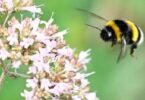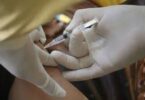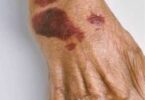F.P. Report
ISLAMABAD: The fresh wave of coronavirus pandemic has started to rock Pakistan as there was a huge surge in everyday infections with most of the new cases were reported from Sindh.
According to the statistics released by the National Institute of Health Pakistan on Wednesday morning, Pakistan has posted massive 541 Covid-19 infections and only one death during the last 24 hours (Tuesday).
Of the 541 new infections, 353 were reported from Sindh, mostly from Karachi, alarming authorities at the Centre to call meetings and hold consultations with the provincial health officials about how to stem the steep rise in the Covid-19 cases in the province.
As per the NIH data, the death toll in Pakistan has now crawled up to 30,393 after adding the only fatality whereas the number of total infections now stood at 1,535,144 after adding the fresh 541 cases.
During the last 24 hours (Tuesday), 15,462 tests were conducted throughout Pakistan whereas the positivity ratio stood at 3.50 percent. The number of patients in critical care was recorded at 100.
During the last 24 hours (Tuesday), another 129 patients recovered from the Covid-19 in Pakistan and the number of total recoveries now stood at 1,499,482. As of Wednesday, the total count of active cases in the country was recorded at 5,269.
As many as 580,131 coronavirus cases have so far been confirmed in Sindh, 508,258 in Punjab, 219,975 in Khyber Pakhtunkhwa, 136,097 in Islamabad, 35,540 in Balochistan, 43,383 in Azad Kashmir and 11,760 in Gilgit-Baltistan.
As many as 13,571 individuals have lost their lives to the pandemic in Punjab so far, 8,111 in Sindh, 6,324 in KP, 1,026 in Islamabad, 792 in Azad Kashmir, 378 in Balochistan and 191 in Gilgit Baltistan.
Meanwhile, on the directions of the Minister for National Health Services, Regulations, and Coordination (NHSR&C), an NCOC team arranged meetings with Health Department Sindh to formulate a strategy at the provincial level amid slight rise in Covid-19 cases in Karachi.
It was discussed to increase testing, contact tracing, and implementation of Non-Pharmaceutical Interventions (NPIs), especially mask-wearing at all crowded places, and domestic travel by air, railways, or road.
US medical experts call for Omicron-specific Covid boosters
A panel of US medical experts on Tuesday called for Omicron-specific boosters this fall, as anticipation mounts that Covid vaccines will be needed on an ongoing seasonal basis, as is the case for influenza.
The committee, convened by the Food and Drug Administration (FDA), voted 19 in favor and two against the measure after a day spent reviewing available data, including projections about future waves and early results from vaccine makers.
Senior FDA scientist Peter Marks summed up the complexity of the problem before the experts’ meeting: making predictions about the future course of a virus that has frequently defied predictions, and mutates even faster than the flu.
“What we’re doing today is working in a very challenging area, because none of us has a crystal ball,” he said.
Panelist Michael Nelson, a professor of medicine at the University of Virginia, said he voted “yes” because he was concerned waning vaccine efficacy would translate to severe outcomes for high risk patients, adding “We need to make a move sooner rather than later.”
Vaccine-makers Pfizer and Moderna have previously announced positive data on antibodies evoked by their Omicron-specific vaccines. The two companies made presentations Tuesday about their mRNA candidate vaccines, as did Novavax, about its protein subunit vaccine.
The scientists were not asked to vote on which form of Omicron they would like to see targeted in updated vaccines: BA.1, the original Omicron, or BA.4 and BA.5, which are rising fast globally.
But in their discussion, most of the experts appeared to favor new shots that are “bivalent” and target both the original Wuhan strain, to generate a wider breadth of immune response, as well as against BA.4 and BA.5, the latest forms of Omicron.
Neither Moderna nor Pfizer have yet produced such vaccines at scale, but representatives from the companies said they could move to production within three months.
In its presentation, Pfizer said a prototype booster it had developed against BA.4 and BA.5 performed well in mice.
While previous “variants of concern” like Alpha and Delta eventually petered out, Omicron and its sublineages have dominated throughout 2022, to the point it comprises the vast majority of all Covid in the world, FDA official Jerry Weir told the meeting.
This makes it more likely that the virus’s future evolution will occur along the Omicron branch of the Covid family tree. Earlier this month, the World Health Organization also recommended the use of Omicron boosters after a primary series against the original strain, in order to evoke a broad immune response.
France recommends wearing masks as cases soar
French Prime Minister Elisabeth Borne urged people to wear masks in crowded spaces, after health officials on Tuesday reported a sharp rises in cases of Covid over the past week.
Positive tests shot up to 147,248 according to figures released Tuesday, 54 percent higher than the previous week, with experts referring to a seventh wave of the virus in Europe.
Borne spoke out after a meeting with senior health officials and the administrative heads of France’s regions.
While it is no longer compulsory to wear masks on public transport, Borne said she was recommending using them in crowded places or confined spaces because of the rise in cases.
She also reminded people to wash their hands frequently, keep enclosed places aired and to check that they were up to date on their vaccinations.
Vulnerable people and anyone aged over 60 already have the right to a vaccine booster.
The new figures are the highest since in France the end of April.
As of Tuesday, France is treating 15,496 people in hospital for Covid, compared to 14,333 a week ago. Of that number, 898 are in intensive care, compared to 841 a week earlier.
While the vaccines have increased people’s resistance to Covid, new variants are getting past the protection that the vaccines — or having been previously infected — provided.






